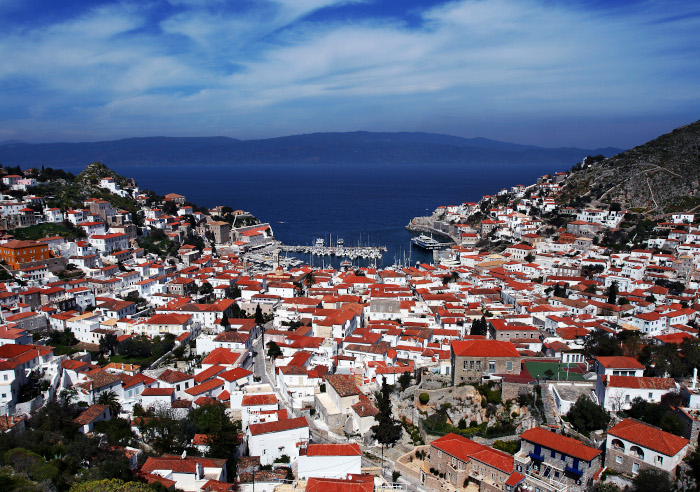According to the prevailing etymology, the name of Hydra is due to its water wealth in the distant past. Although the island had already been inhabited since prehistoric times, later, it remained a rough and almost deserted place, cut off from historical and cultural development. The first reference to the island - with the name Hydrea - is found in Herodotus. For the following centuries, information about Hydra is minimal. In the western medieval sources - mainly in geographical texts and maps - the name of the island appears in various forms (Sidra, Sidre, Sidera, Sidero, Sidro, etc.), while the time when the current name was established has not been specified. From the second half of the 15th century, its settlement begins with the settlement of Albanian speakers from the neighboring Peloponnese. During the second half of the 17th century, the current settlement of Hydra begins to take shape, but also to lay the foundations for the subsequent development of shipping, since the barren terrain of the island forced the inhabitants to look to the sea for resources for survival. In the 18th century, the Hydraians began to build small sailing ships (trechanterias) and from the middle of the same century, ships of large capacity, which sailed throughout the Mediterranean and the Black Sea. At the same time, the war conflicts and rebellions in the Greek area resulted in the settlement in Hydra of new settlers from the Peloponnese, who further strengthened - populationally and economically - the island. A series of factors at the end of the 18th c. and at the beginning of the 19th century they contributed to the prosperity of the maritime and commercial activity of the island, and The high level of development of Maritime and commercial activity is evidenced by the establishment of a maritime school with the transfer of Italian and Portuguese teachers, for the more systematic teaching of the maritime art, as well as the establishment of special laws and rules for the regulation of related transactions. On the eve of the revolution of 1821, the island had a population of about 28,000 inhabitants and had 186 ships, equipped with cannons to combat piracy and manned by war-experienced crews. The revolution in Hydra was officially declared on April 16, 1821 by Antonios Oikonomou and the people, who relaxed the reservations of those who had qualified. The island made a decisive contribution to the naval struggle by sacrificing human lives, ships and money and highlighting leaders and fighters such as: A. Miaouli, A. Pipino, I and M. Topazi, A. Tsamados, G. Sahini, G. Shaktouri and others. However, the reaction of the powerful of Hydra to the attempt of I. Kapodistrias to abolish the privileges enjoyed by the island until then was strong. After the establishment of the Greek state and for about a century, Hydra, despite its small size and its intensifying economic decline, gave the political life of the country five prime ministers, many ministers (especially in the Ministry of Shipping), as well as Admiral P Kountouriotis, commander of the Greek fleet in the Balkan wars and first president of the Greek republic.
Source: Municipality of Hydra
http://www.ydra.gov.gr/
